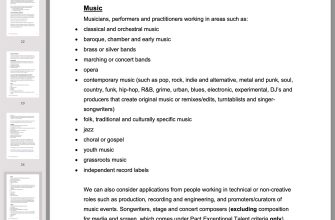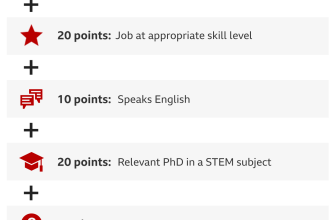While on sick leave, an employee is not typically expected to take a vacation. This could be used as evidence of malingering and lead to disciplinary action or even termination when an employee has reported being sick or injured. However, taking time off may be warranted if an employee is experiencing stress or another condition affecting their emotional health. Taking time off during this period may aid their healing and allow them to return to work sooner.
The following advice for employers examines the regulations surrounding workers taking vacations during sick leave and what else an employee may lawfully do while on sick leave.
Reasons for leave during Sick Leave
While out ill, for instance, a worker may take advantage of annual leave if they meet the following conditions:
- Are sick chronically and could benefit from a vacation to speed up their healing
- Are unable to work but are otherwise healthy enough to take time off
- Are experiencing mental health issues that could benefit from a vacation

While on sick leave, it is the employee’s responsibility to seek time off. Although companies can’t legally require workers to take vacation time while they’re out sick, it may be to their advantage to do so, both for the sake of the worker (who receives full pay during this time) and the company’s workload (which will be less burdened by the employee’s need for time off upon their return).
If the employer agrees, the employee’s sick leave will be suspended for their vacation, and they will be compensated for their time off with holiday compensation. However, medical leave can be extended if the employee has already taken time off but is still not feeling well enough to return to work.
Can my employer force me to avail my vacation days when I’m sick?
We’ve all heard horror tales about bosses telling their employees that taking a sick day would be a holiday. Not what you want to hear if you’re feeling truly ill. It turns out that they are prohibited from doing so.
In most cases, your boss has the final say over whether or not you are granted time off for holidays. You’ll need to give them two days’ warning for every day off your request. There wouldn’t be enough time to advise you to use a sick day as a holiday anyway. If you are a manager concerned about the number of sick days your workers take, read our article.
To what extent can Sick Leave be used as a vacation?
One’s sick day should be treated as an annual vacation, as no law is against it. Of course, whether or not this is permitted depends on the company’s policies.
For the worker’s benefit, it may result in fewer documented absence days. As a result, they will be compensated for the day even if they would not have been otherwise.
Because a day of vacation has been used, the business will have an extra day of productivity at some point in the future.
The issue for the business is that they can’t track it as an absence, which impacts their awareness of absenteeism due to illness. They are also less likely to identify the root cause of the lack over time.
Jim discovered that even if an employee requests a holiday and it is denied, they can still call in sick and turn the day into paid time off afterwards.
Help with the law:
Employees absent from work due to illness but take time off for vacation (whether the break was asked before or during the sick vacation) are to be counted as absent for both reasons. A No salary status entitles an employee to two weeks of full pay during a “holiday,” but they will continue to receive no compensation for any illness-related absences. Holiday compensation can be rounded up to full payment if an employee gets half of their salary or SSP.
Is there a good reason why you would decline a vacation?
Issuing a complete notice could end up saving your company finances. For instance:
- One of your employees has been ill for an extended period, and their decided sick pay is about to expire. Only 4 months of this year’s vacation time left.
- The prognosis for your employee’s health is getting better, and they may be able to return to work before the conclusion of the leave duration.
- Your employee has requested an SSP to begin on the day after their contractual ill pay ends. Without a denial, the employee would be compensated for time beyond the already decided ill-salary period.
- You can issue a counter-notice denying the employee’s vacation proposal in this situation. If your employee remains ill past the end of their compensated sick leave, they will not receive further compensation from you.
- After your employee returns from leave, they will still have time to take the paid vacation before the conclusion of the leave year.
This could save your company several weeks of salary if implemented. You could also defend your company’s compliance with the law by saying that you gave your employee a “genuine” vacation instead of a “written” one when they would have been missing from work anyway due to illness.
Does Sick Leave still affect your vacation pay?
Holiday and sick pay are mutually exclusive and cannot be avail simultaneously. The choice is either one or the other. (However, workers can seek vacation time off with salary while out sick).
There are typically two kinds of ill-pay available to workers:
Payments Required by Law When Ill (SSP)
The smallest amount of sick leave an employer must provide is statutory sick pay (SSP). This is equivalent to £96.35 weekly, up to 7 months in the current year.
If an employee has yet to receive SSP within the previous 2 months. They will begin receiving payments on the fourth day of medical leave.
Sick compensation as per contract
To supplement the SSP rate, employers may give contractual sick pay.
The law does not mandate that businesses provide such benefits. Therefore, it is completely up to your preference regarding how much and whether to offer it.
The terms can be tailored to your specific company requirements. For instance, certain months or days of employment may be required.
Pay for Time Off and Sick Leave
It can be challenging to tell them apart when two kinds of vacations meet. Off days and sick leave cannot be taken at the same time.
There are a few ground principles that should be followed when handling sick leave and vacation pay:-
- Sick time can be used to collect holiday compensation. When an employee who is sick gets a yearly holiday their sick time is suspended for the period of the break. On their work-to-return, it can be resumed.
- If a worker is seriously injured or becomes ill during or immediately before their annual leave, they are entitled to a refund of unused vacation time. Ill pay is only sometimes guaranteed at the same salary as vacation pay by employers. Read your job agreement carefully to know what is expected of you.
- The company cannot force workers to use their vacation time when ill. Those who have accrued up to 1 month of wasted vacation time may request to extend it. The deadline to do so is 1 and a half years.
Can employees be stopped from getting time off while on sick days leave?
- A counter-notice allows you to prevent an employee from taking a statutory holiday on the desired dates if they notify you of their intention to do so.
- However, your efforts will be well-spent if the employee is likely to return to work during the recent vacation year. If you give a counter-statement to your employee to discourage them from using their vacation time before the end of the annual leave, you will almost definitely violate the law. If your company declines to let an employee take a vacation, it may have to pay damages. In the case of a termination of employment, you’ll be responsible for paying the employee’s accrued but unused vacation days.
Accumulating Sick Leave toward a vacation
The medical leave accrual period for workers continues as usual.
Holiday and sick compensation policies are discretionary for employers. Workers should look into their job agreement or the company’s guidelines if they have any questions.
The sick vacation for an Extended Period
Long-term sick leave is work absences due to illness lasting longer than 1 month.
If someone left the job for an extended time due to illness, any unused vacation time would be taken to the next year.
Any unused vacation time accrued by an employee out on extended sick leave can be rolled over for up to four weeks. A holiday that is taken over must be used 4.5 months after it was originally brought over.
The company may not require the worker to use any accumulated vacation time. For instance, if someone replaces sick holidays and there is still time in the vacation year, they can use the time off.
FAQ’s
When dealing with worry and stress, what are my legal protections?
Employees are eligible for 1 week of ill leave without a doctor’s letter and additional time off with certification from a primary care physician or other licensed medical professionals that they are medically unable to perform their job duties. This is not a reason to punish or otherwise mistreat a worker.
When on sick vacation, am I able to travel?
Unless your sickness prevents you from travelling, you can enjoy your sick leave by visiting new places. You can journey anywhere in the United Kingdom or even further afield during your sick leave from work.
Can I travel when you are on a leave?
As long as the employee has given a doctor’s letter stating that they cannot work due to stress or sickness, the employer must allow them to take time off for vacation.
Do vacation days still accumulate for employees?
Employees continue to earn vacation time even when they are out unwell. Specify in employees’ contracts that they will be paid for time off they use while sick or on vacation. That way, everyone in the company can easily access the needed data.
Staff members should be allowed to roll over unused vacation days if they miss out on time off due to illness or other personal obligations.
The local policy allows workers to bank at least four weeks’ wasted vacation time. This one-time offer expires 18 months after it was originally rolled over.
Can you explain how sick compensation is determined for me?
It would be best if you were paid at your regular daily wage for legally required sick leave. Up to €110 per day is yours.
When I’m out ill, what happens to my vacation time?
Get a doctor’s note for the days you were unwell while on vacation, and those days won’t be deducted from your vacation time. Once you have a doctor’s note, your boss can’t make you take annual leave while you’re sick.
You can use the time off to accrue yearly leave if you have a doctor’s note.
Annual leave accrued but not used during a lengthy period of sick leave can be carried over for up to 1 year and 3 months after the year it was earned. You are entitled to holiday pay for the sick day you did not use if you resign within 15 months.
I will have to take time off work due to worry; will my employer fire me?
Stress-related absences are the only grounds for termination. If the boss has made every effort to help, the employee returns to work the employee but is still unable to do their job.
Conclusion
During a period of sick leave, it is acceptable for employers to request that workers inform them of their plans to travel internationally and the dates they will be out of the office. Also, it makes sense for companies to require workers to maintain an attitude and routine that promotes healing while on sick leave, wherever they may be (the United Kingdom or elsewhere). Still, I don’t think it would be reasonable to forbid all sick days from being used for vacation, and I also don’t think remedial action is warranted unless the offense is particularly flagrant.
It would be difficult for an employer to label this as misconduct if the employee provided a letter from his or her doctor supporting the idea that the vacation would aid recovery.








